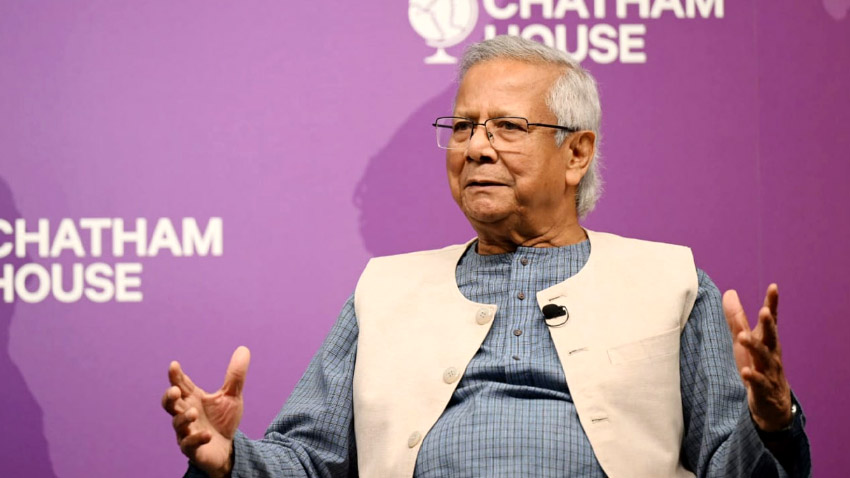Speaking at a talk hosted by Chatham House in London, Prof Yunus reflected on the challenges and risks involved in lifting Bangladesh Bank’s control over the exchange rate—one of the IMF’s key conditions for disbursing its $4.7 billion loan.
“We were not willing to jump into the water. They said, ‘Come on, you can do it.’ And finally, we did it,” he said. “So we are thankful to the IMF.”
Bangladesh adopted a unified, market-driven exchange rate in May, allowing the taka to float more freely. Despite initial concerns that the move would trigger volatility, inflation, and a foreign exchange drain, the currency has remained stable, with only marginal depreciation—from Tk 122 to Tk 122.97 against the US dollar between early May and early June.
Prof Yunus acknowledged that the decision was initially met with internal resistance, given fears of economic disruption. “So far, we were controlling it to avoid exposure. Opening it to the market was a big step for us,” he noted.
He said the IMF had insisted on the reform before approving further loan tranches, and Bangladesh negotiated a conditional implementation with an option to reverse it if instability arose.
“They studied it and said, ‘You can handle it.’ And in the end, they were right,” Yunus said, adding that the IMF’s insistence wasn’t ideological, but pragmatic. “They didn’t push us into trouble. They helped us get through it.”
The interim chief adviser also said that the transition boosted international confidence in the caretaker administration.
“We received an amazing response globally. The IMF, the World Bank—all the international institutions have been supportive. That gave the government a moral boost—that we are not abandoned,” he said.
The IMF approved the $4.7 billion loan package in January 2023, linking tranche disbursements to reforms in fiscal transparency, banking governance, and foreign exchange liberalization.

